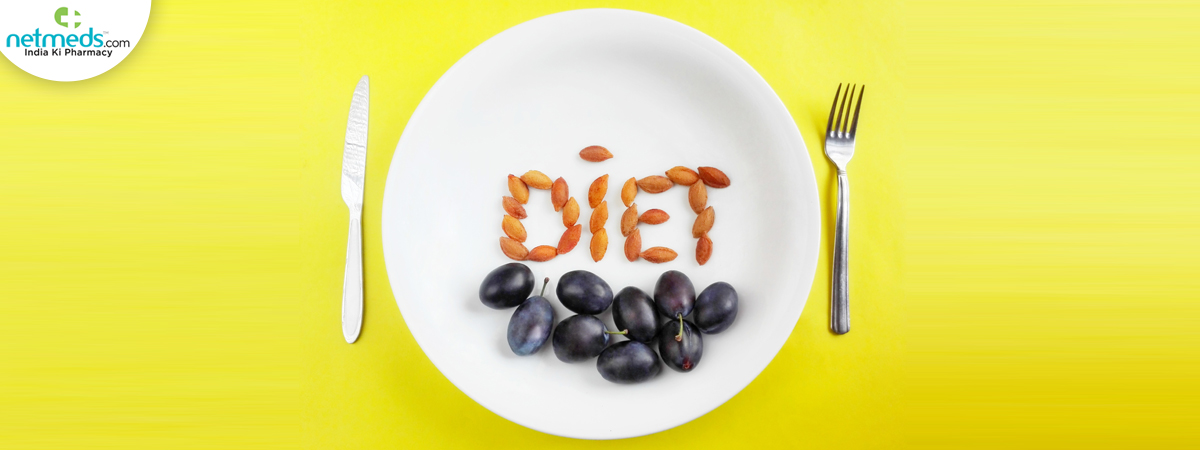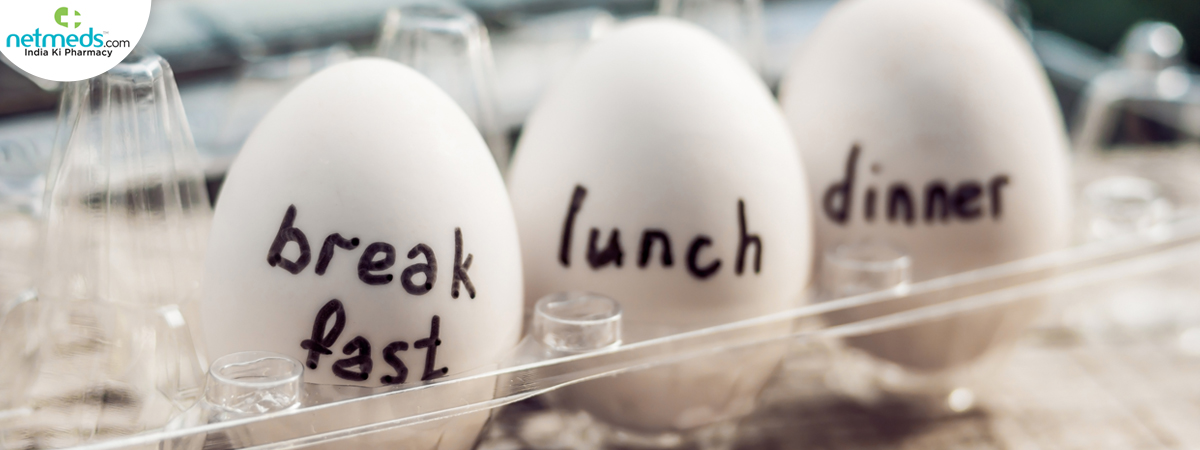Constantly searching for the most effective method to shed pounds quickly? When it comes to weight loss, though controversial, the approach that has emerged in recent years (and practiced by many) is mono dieting. A regime that involves eating only one type of food for an extended period, while it may sound extreme, proponents argue that it can lead to rapid weight loss. In this article, we will explore what mono dieting is, how it works for weight loss, and the key pros and cons you should know before trying it.
Also Read: 7-Day Indian Vegetarian Diet Plan For Sustainable Weight Loss Goals

What Is Mono Dieting?
Mono dieting, also known as the one-food diet, is a dietary plan where an individual consumes only one specific type of food and nothing else for a set duration, typically ranging from a few days to several weeks. The idea behind this diet is simple; by eliminating all other foods, the body will only be able to derive energy from the chosen food source.
Also Read: On Weight Loss Journey? 10 Foods You Should Avoid As Recommended By Nutritionist
How Mono Dieting Supports Weight Loss?
The most straightforward explanation for how mono dieting can lead to weight loss is its potential to create a calorie deficit. By eating just one type of food, the variety of options available for consumption is drastically reduced. For many people, this limitation leads to a natural reduction in overall calorie intake. Since weight loss occurs when the body burns more calories than it consumes, mono dieting may encourage the body to use stored fat as an energy source. With fewer food choices available, mono-dieting eliminates the complexities of meal planning, portion control, and food preparation. The reduced food variety also makes it easier to monitor how much you are eating, making it less likely to overeat.
Does It Have A Detoxification Effect?
Yes, this diet plan can provide a detoxifying effect. By consuming only one type of food, the body may be able to focus on eliminating toxins without the interference of processed or heavy foods. While this is still a subject of debate among nutritionists, some believe that a mono diet can provide a temporary reset for the digestive system.

Pros Of A Mono Diet
For those looking to lose a few pounds for an upcoming event, mono dieting may seem like an attractive short-term solution with the following benefits:
Quick Results
One of the main attractions of mono dieting is the potential for quick weight loss. Since you are drastically reducing your caloric intake, the pounds may come off faster, unlike other traditional approaches.
Encourages Mindful Eating
Mono dieting forces you to focus on the act of eating itself. With fewer distractions and options, it may encourage a more mindful eating approach, allowing you to pay closer attention to hunger cues and satiety. This mindfulness could, in some cases, help break patterns of mindless snacking.
Provides Digestive Rest
Eating a single food for a period can give your digestive system a break from having to process a variety of different nutrients and ingredients. Some proponents believe this rest period can reduce inflammation and promote better digestion.
Also Read: Calorie Deficit Diet: Know What It Is and How It Works In Your Weight Loss Journey?
Cons of Mono Dieting
Like most diets, mono dieting comes with its own set of problems. Here are some of them
Nutritional Deficiencies
One of the most significant drawbacks of mono-dieting is the risk of developing nutritional deficiencies. Our bodies require a range of vitamins, minerals, proteins, fats, and carbohydrates to function properly. By eating just one food, you may not be getting all the essential nutrients your body needs. This could lead to muscle loss, weakened immunity, and fatigue.
Unsustainable in the Long Term
Mono dieting may not be a sustainable long-term solution for weight loss. While it may lead to rapid weight loss in the short term, it is difficult to maintain a healthy lifestyle when eating such a restricted diet. Over time, the lack of variety can lead to boredom and cravings, making it harder to stick to the diet.
Negative Impact on Metabolism
Long-term caloric restriction from a mono diet can slow down the metabolism. When the body experiences prolonged periods of low-calorie intake, it can enter starvation mode, reducing the number of calories it burns. This can make future weight loss more challenging and increase the chances of regaining weight after the diet ends.
10 Foods You Can Eat On A Mono Diet
· Apples
· Bananas
· White or Brown Rice
· Boiled Potatoes
· Grapes
· Oatmeal
· Cucumbers
· Boiled Eggs
· Watermelon
· Chicken Breast
3-Day Mono Diet Plan
Day 1: Apple Mono Diet
· Food: Only apples
· Quantity: Eat five to seven apples spread throughout the day
· Drinks: Water, herbal tea (no sugar or milk)
Day 2: Boiled Potato Mono Diet
· Food: Boiled or steamed potatoes with no oil, butter, or salt
· Quantity: About five medium potatoes, divided over four to five meals
· Drinks: Water, lemon water with no sugar
Day 3: Banana Mono Diet
· Food: Only ripe bananas
· Quantity: seven to eight bananas throughout the day
· Drinks: Water, coconut water
Conclusion
While mono-dieting may result in quick weight loss, nutritional imbalances, psychological stress, and unsustainable long-term results must be considered before attempting this diet. Mono dieting is not a bad idea, but by and large, the best path to weight loss is one that focuses on sustainable habits such as balanced eating, exercise, and lifestyle changes. Always consult a healthcare provider or a nutritionist before starting this diet plan.
(This article is reviewed by Kalyani Krishna, Chief Content Editor)
Author Profile: Preeti Sharma
Preeti Sharma has a master’s in electronic media and mass communication and certification in short-term writing from Florida. With close to a decade of experience, she specializes in crafting engaging blogs on beauty, veterinary care, and healthy cooking. Preeti is proficient in video editing tools and produces captivating and informative content across multiple platforms.
References:
Optimal Diet Strategies for Weight Loss and Weight Loss Maintenance
Ju Young Kim
https://pmc.ncbi.nlm.nih.gov/articles/PMC8017325/
https://nutritionj.biomedcentral.com/articles/10.1186/s12937-024-01049-6



 Previous
Previous